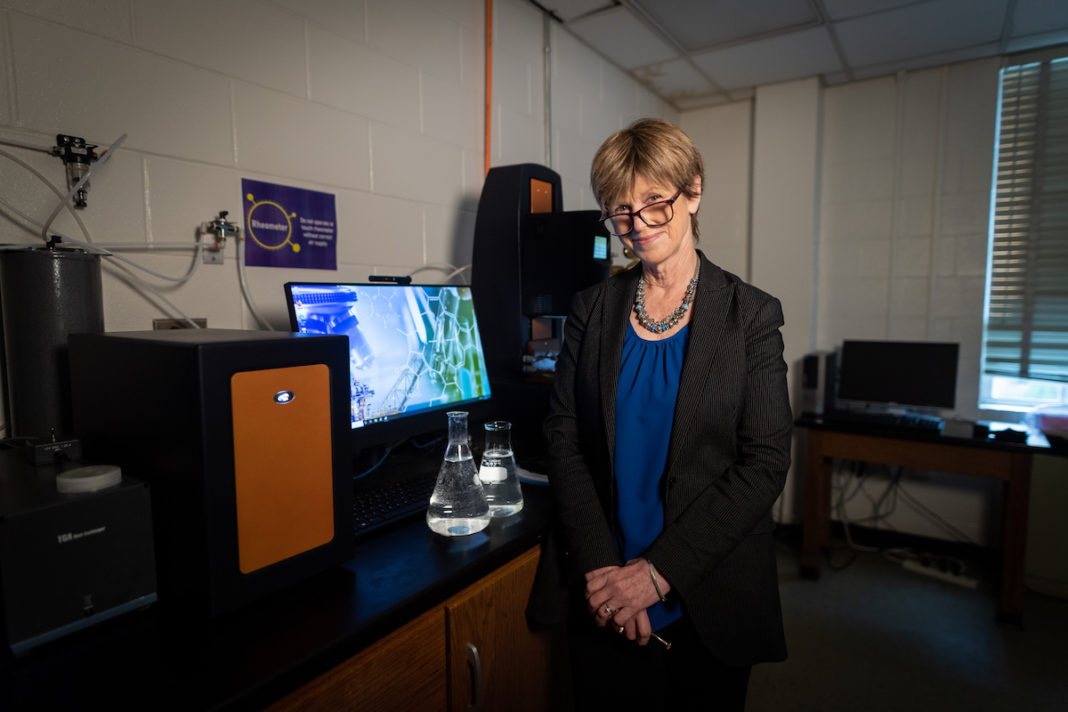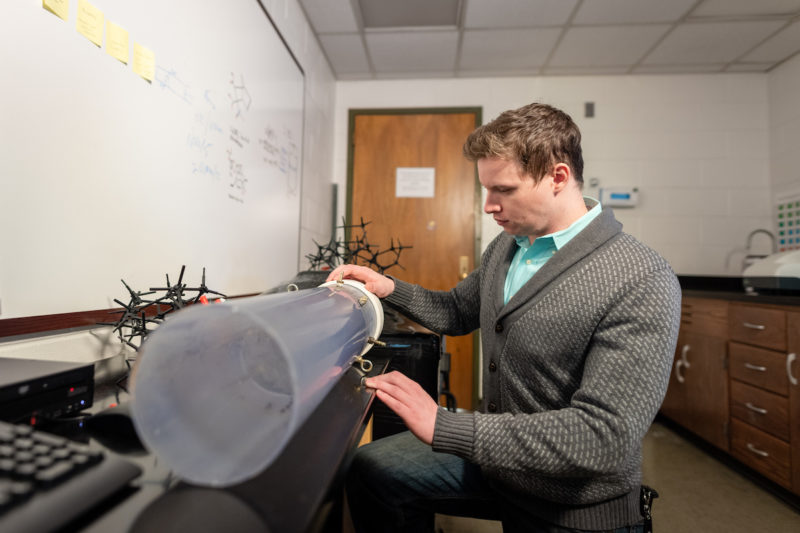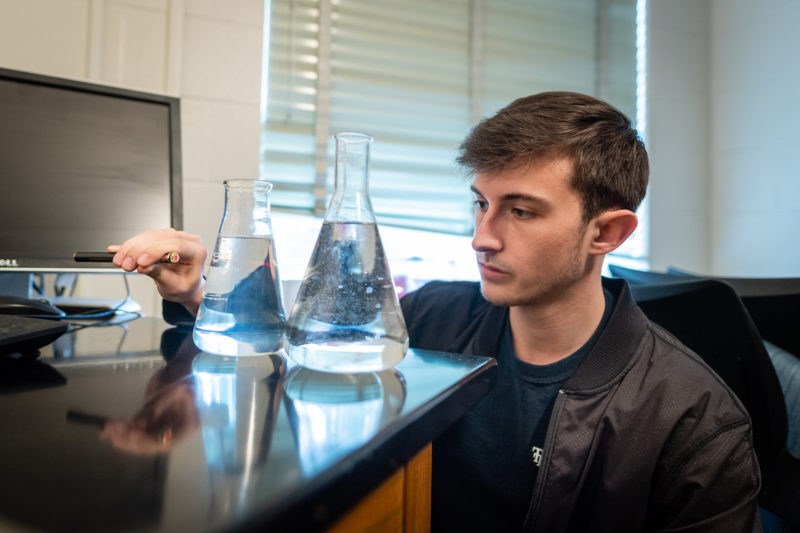
COOKEVILLE — Throughout her academic career, Holly Stretz has followed the research, seeking answers to questions some have never asked. At Tennessee Tech, her research is helping students ask unique questions and find those answers through chemical engineering.
“There have been Nobel prize winners who have said, ‘Follow the research. Follow where the data takes you,’” said Stretz. “That’s where we are going to go.”
Stretz, who has been at Tech since 2005, is the interim chair and a professor in chemical engineering. She has focused her research on process fouling and dynamics of natural organic matter in water treatment; nanocomposite structure and modeling; extreme temperature materials dynamic properties; fate and transformation of nanoparticles in the environment; and, responsive hydrogels for medical diagnostics and drug delivery.
Her present focus is on surface water, and what is happening with certain carbon-based components found in the environment, and how these polymeric components, including natural organic matter, behave in surface water or during water purification.
“Natural organic matter is the decaying products of leaves, and we have a lot of leaves around here,” said Stretz. “That particular material can foul water treatment facilities, and there are a lot of water treatment facilities and various needs for clean water around Tennessee.”
Stretz explains that when you think of water treatment you think of drinking water, but what you don’t think about is food production and the water that supplies those facilities or that we have so much biomass production for lumber and for pyrolysis for energy for biodiesel for example. They also need processed water and they need it to be cleaned.
A thin, expensive membrane is used to filter the water. Stretz and a group of graduate and undergraduate students are studying how the membrane gets fouled (dirty) and what can be done to help the surface or the process clean itself.
“We have a big research group of graduate and undergraduate students involved here,” said Stretz. “One of the things that makes our department and Tennessee Tech so unique is that all of the faculty are research-active involving students, even as young as freshmen, who can get involved in research and do some impactful work.”
Dennis Piercy is one such student. A chemical engineering graduate student from Johnson City, Piercy has developed a nitrogen stripping and oxygenating column for fish hatcheries in Tennessee to control the gas content in raceways for the fish. Being able to be involved in research and develop something unique is exactly why he came to Tech.
“Tech had what I wanted. I wanted a great chemical engineering program and to really understand science at the basic level,” Piercy said. “I knew after having a meeting here that this is where I wanted to learn and grow and develop my skills.”

John Clark, a junior from Dandridge, is another student who has been involved in research. The chemical engineering and foreign languages major is studying membrane fouling, specifically how polymers, that are a natural product of organic decay, interact with and foul those membranes that are used for water filtration.
“I really enjoy looking at the processes that are behind everything that we take for granted such as food production or energy production,” said Clark. “All of that is something a chemical engineer looks at.”

Stretz says that having students involved in research projects motivates them to ask questions that impact real life and work the data to find useful answers.
“It’s a really exciting and extraordinary thing in research to learn something that no human being has ever known or seen for the first time,” said Stretz. “To be the person who learns that for all of humanity and then to disseminate it through talks or teaching — that is an extraordinary thing.”
For more information about Stretz, go to https://www.tntech.edu/directory/engineering/faculty/holly-stretz.php.
For more information on Tech’s chemical engineering program, go tohttps://www.tntech.edu/engineering/programs/che/about_che.php.








